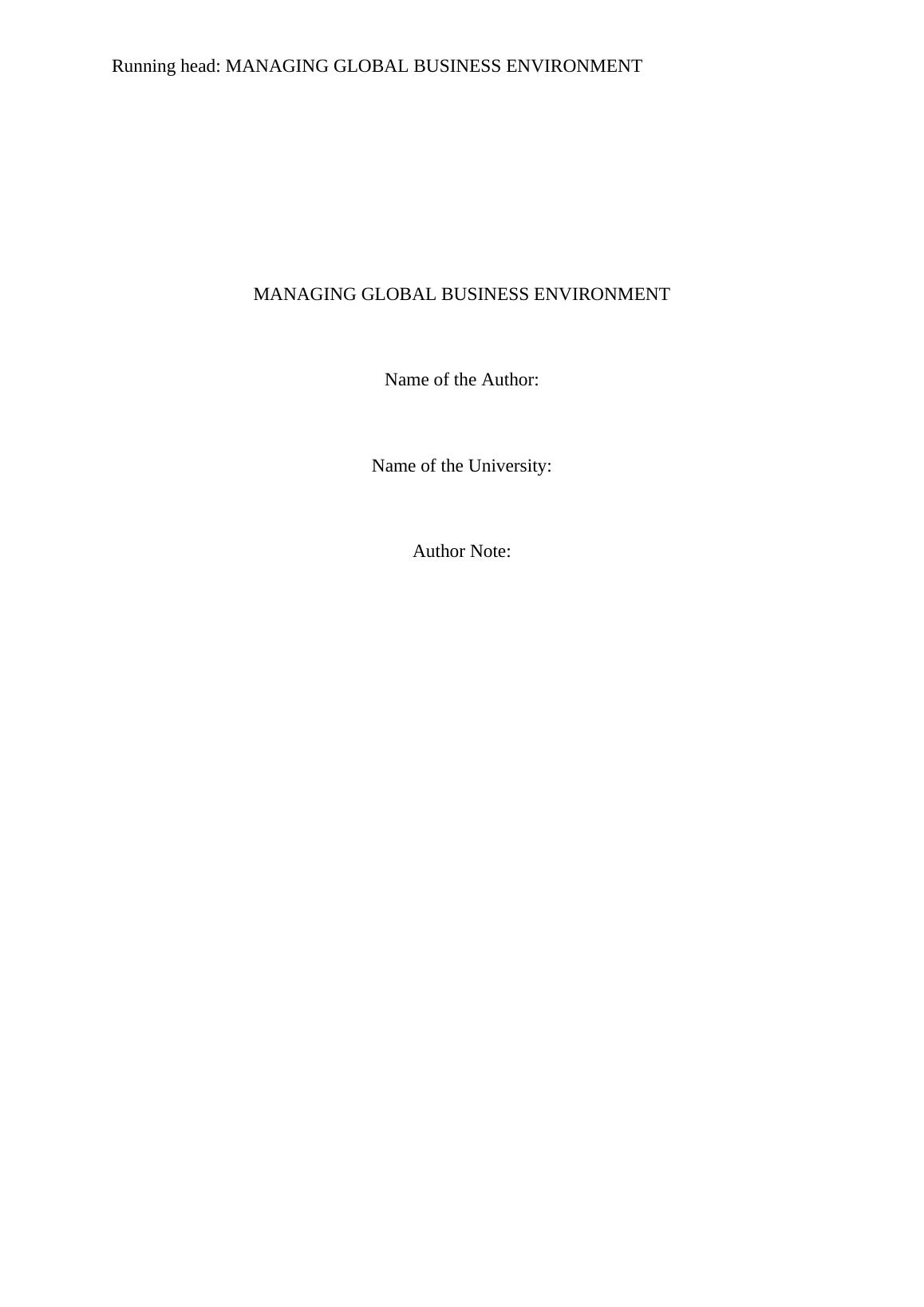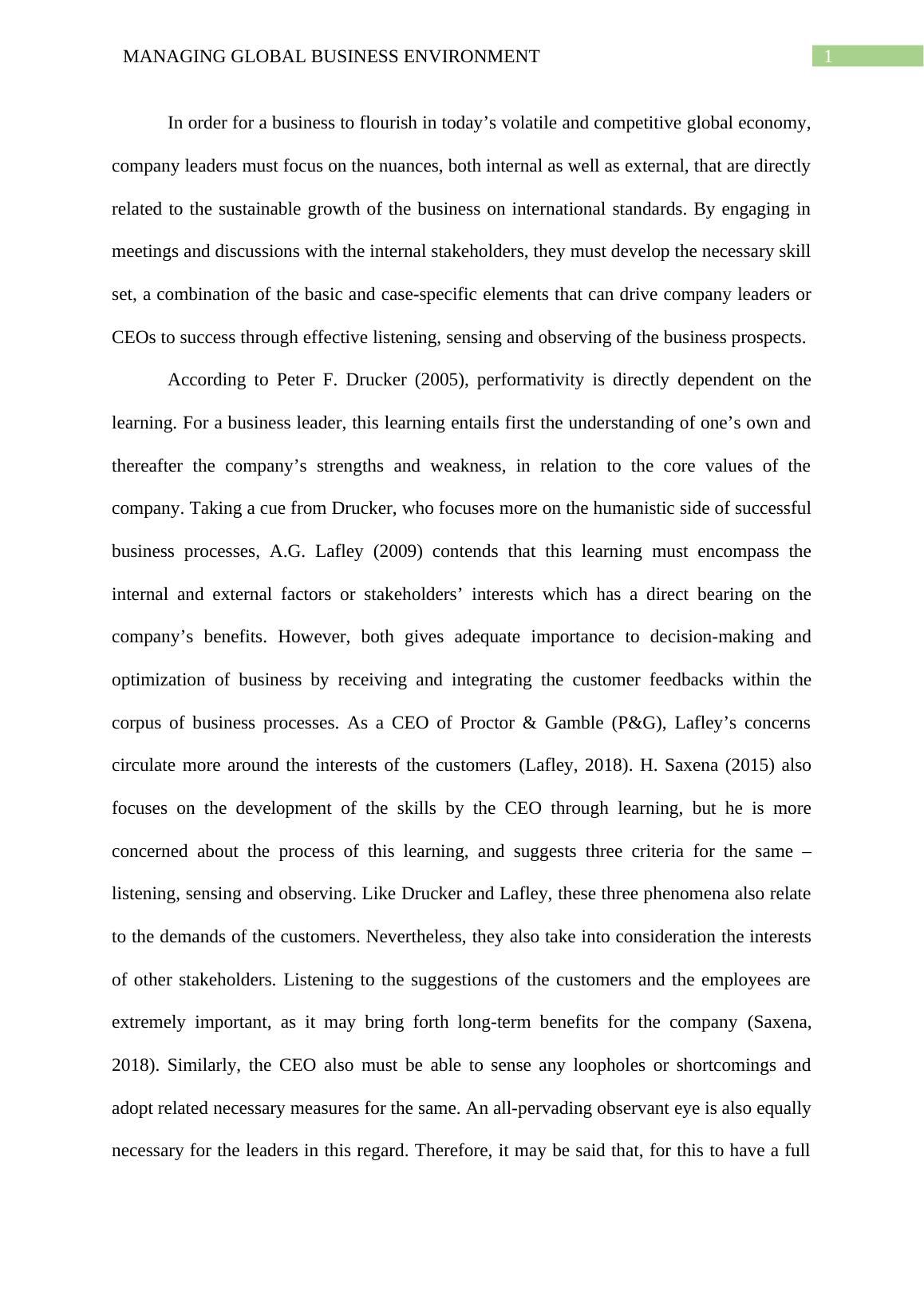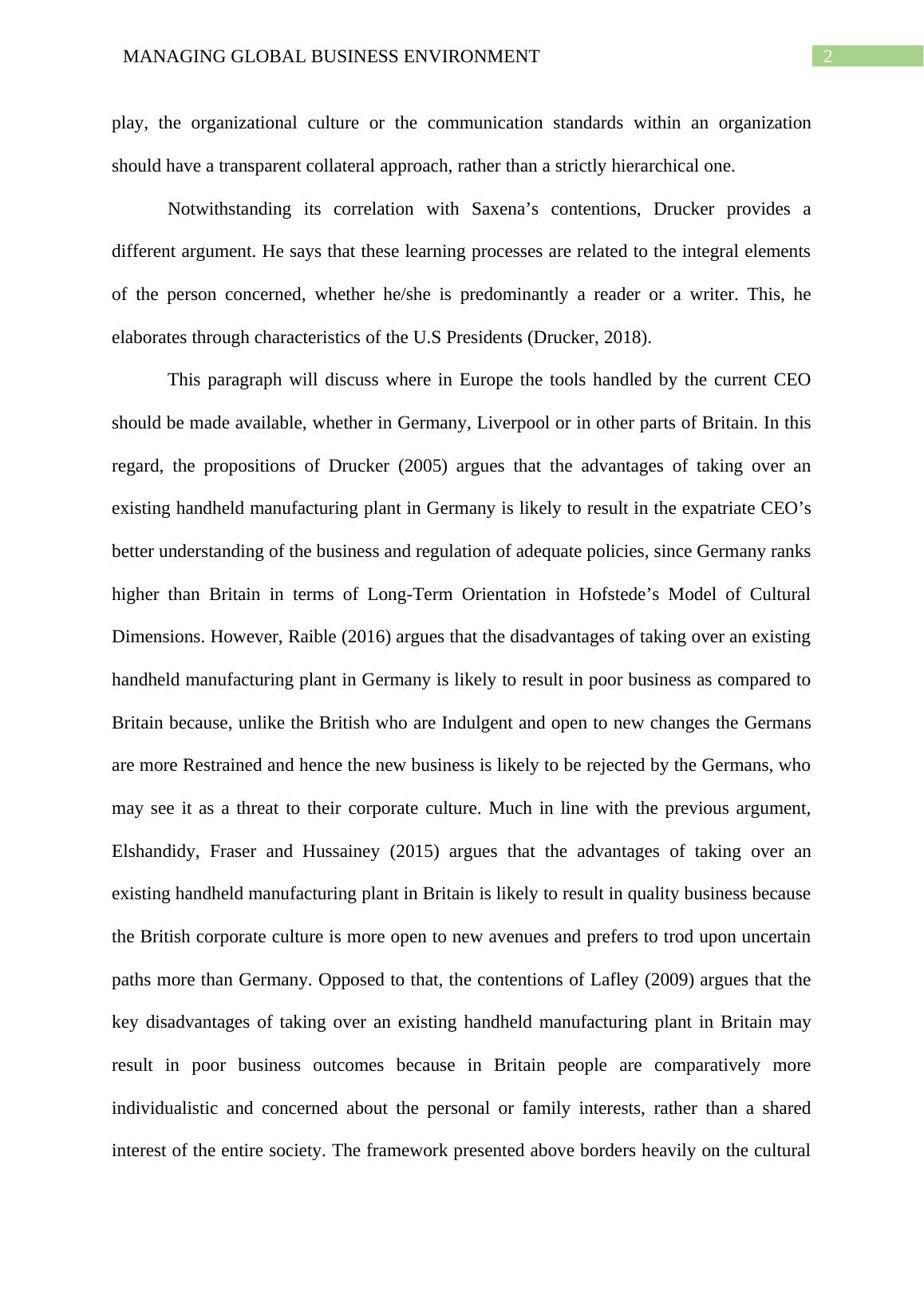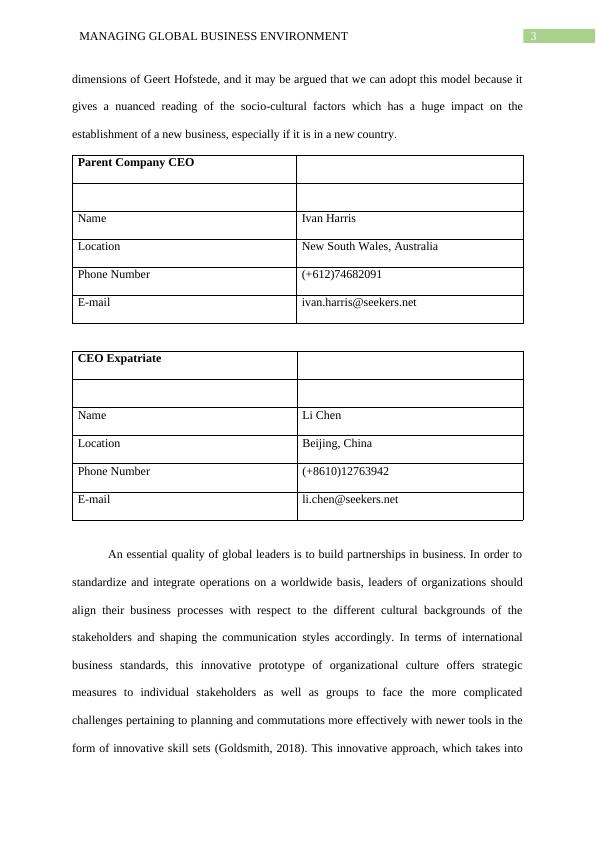Managing Global Business Environment: Skills Needed for Success
11 Pages2579 Words92 Views
Added on 2023-06-06
About This Document
This article discusses the necessary skills for success in managing a global business environment. It emphasizes the importance of cultural intelligence, effective communication, and decision-making. The article explores the nuances of different cultures and how they impact business processes. It also includes a CEO expatriate skills assessment and identifies skill gaps that need to be addressed through training.
Managing Global Business Environment: Skills Needed for Success
Added on 2023-06-06
ShareRelated Documents
End of preview
Want to access all the pages? Upload your documents or become a member.
Global Environment of Business
|7
|1221
|441
Management in Global Business: Skills Required to Lead Effectively
|8
|1058
|78
Global Business Environment Case Study 2022
|8
|1157
|20
Corporate Governance and Leadership
|18
|900
|496
Importance of Financial Reporting in Corporate Governance
|8
|2116
|174
Leadership Style Of Jeff Bezos | Case Study Of Amazon
|11
|2518
|5201




